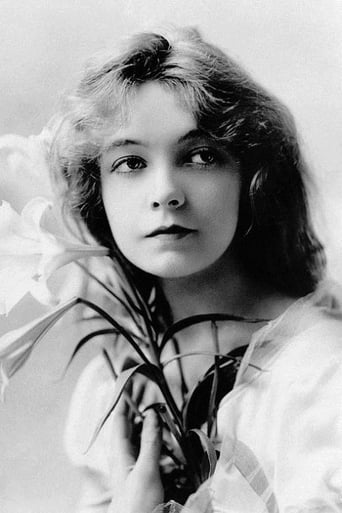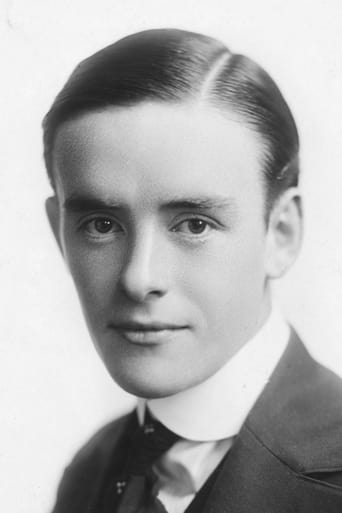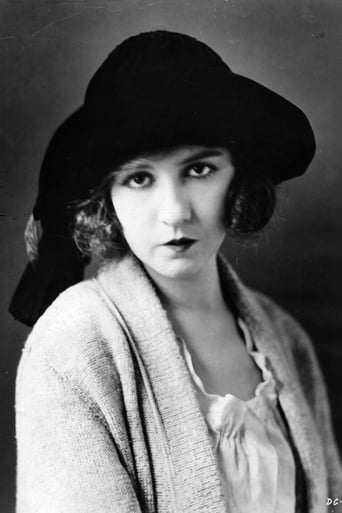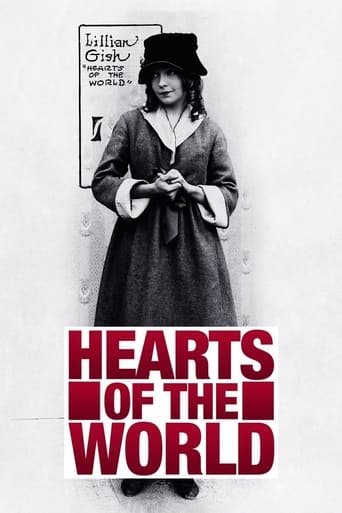
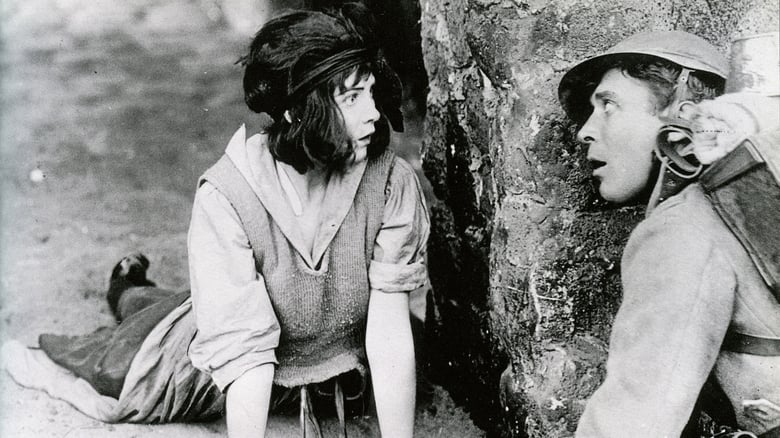
Hearts of the World (1918)
A group of youngsters grow up and love in a peaceful French village. But war intrudes and peace is shattered. The German army invades and occupies village, bringing both destruction and torture. The young people of the village resist, some successfully, others tragically, until French troops retake the town.
Watch Trailer
Cast


Reviews
This film from D.W. Griffith chronicles the relationship between a guy and lady (called 'the boy' and 'the girl' throughout the film). Unfortunately for them, WWI begins and instead of marrying, they are separated. He goes off to war, she is stuck behind enemy lines after the Germans take over that portion of France where she lives. Will they lovers be reunited?As long as you don't take this film as a factual representation of WWI, you should watch it. However, please understand that it was a piece of blatant propaganda financed by the British government--designed to get the Americans to commit to the war. However, by the time the film was released, the Americans had declared war on the Central Powers (including Germany). Just keep in mind that the one-dimensional view of the war is historical nonsense. And, while folks in 1918 wouldn't agree, the US really had no reason to get involved in this as EVERYONE involved was responsible for this long and senseless war. But in the film, the Germans are mostly murderous guys bent on despoiling women and the French are 100% pure and virtuous--which clearly makes the film propaganda. Want some more examples? How about the intertitle card that reads "German militarists plan the dastardly blow against France and civilization"! Heck, the Germans in this one even want to blow up baby geese!! Overall, technically well made (with a few amazing battle scenes) and highly inaccurate and inflammatory.
Hearts of the World (1917) *** (out of 4) D.W. Griffith's WW1 epic has two Americans (Robert Harron, Lillian Gish) living in France and falling in love. When the German's attack the man goes off to fight, which ends with devastating results. The actual making of this film is somewhat more interesting than the final product, although the movie is still good but several notches below The Birth of a Nation and Intolerance. After that epic 1916 film Griffith wanted to try something bigger and found that the British government was willing to give him full access to anything he wanted. Griffith wanted to shoot real battle scenes and that's what he did for the film and he nearly once again was killed doing so. The British paid for the film to be made in hopes that it would inspire America to join the war effert. As for the film, it has some brilliant moments but sadly the love story really brings things down, which was somewhat surprising since Griffith is usually good with the melodrama. Harron is decent in his role but not strong enough to carry the film. Gish on the other hands is terrific as usual as is her sister Dorothy. Erich von Stroheim plays one of the German's in charge. The battle scenes, a lot of them real WW1 footage, is the highlight of the film and like Griffith's previous two films, it's rather amazing to see everything play out. This is certainly some of the greatest battlefield scenes I've ever watched. There's also another terrific scene where Gish, fearing her love is dead, tries to find him in the trenches. Gish's walk mixed with the beautiful cinematography makes this an unforgettable scene. In the end the film is certainly flawed but the battle scenes make it worth at least one viewing.
Two American families, the Hamiltons and the Stephensons, have immigrated to a tranquil French village. As the film begins, Robert Harron (as "the Boy" Douglas Hamilton) and Lillian Gish (as "the Girl" Marie Stephenson) return home from separate trips. Lillian is obviously infatuated with Mr. Harron, and sets out to win his heart. Meanwhile, singer Dorothy Gish (as "The Little Disturber") arrives in town; and she, with "perseverance and perfume", also sets her sights on handsome Harron. While Dorothy's efforts at seduction are valiant, Harron proposes to Lillian. As they plan their wedding, their lives are interrupted by a bigger "disturber" - The Great War (now called World War I) This film, another huge hit for the director, was "commissioned" by the British government (note the introduction), and must have secured the blessings of both the U.S. and French governments. The purpose was to create a pro-war, propaganda epic. Although the film is patriotic, and the war is never exactly shown as unnecessary; it leaves an unmistakable impression as an ANTI-war film. So, what started as "A Love Story of the Great War" becomes "A Love Story Interrupted by a Great War". Griffith reveals his true anti-war sentiments with the statement, "After all, does war ever settle any question? The South was ruined - thousands of lives were sacrificed -- by the Civil War; yet, did it really settle the Black and White problem in this country?" (This question also offers, arguably, some redemption for Griffith's tendency for racial insensitivity. It's too bad Griffith's "The Greatest Thing in Life" is currently unavailable; in it, Harron shocked audiences by kissing a dying Black soldier.) In hindsight, it's easy to dismiss "Hearts of the World" as a Griffith production line effort. While it's derivative in film techniques (Griffith's own); it still equals, and sometimes bests, earlier work - for example, witness the improved upon (from "The Birth of a Nation") climatic ending, with Gish frantically trying to escape George Siegmann (as Von Strohm)'s clutches. This, and the battle sequences are, at least, up to the standards set by Griffith; so, it may be unfair to think of "Hearts of the World" as relatively minor. It would likely have won a "Best Picture" of the year, had they been given. Robert Harron would have won an additional "Best Actor" award; and, while Lillian Gish might have lost to Mary Pickford's "Stella Maris", sister Dorothy Gish would have earned a "Best Supporting Actress" award. Also watch for G.W. Bitzer's amazing camera work. The explicit, but appropriate scene of a mother nursing her baby during wartime. Dorothy licking her lips over Harron, but settling for "Cuckoo" Robert Anderson. Griffith's parallel symbolism, right down to Gish's goslings and Harron's little brothers. Lillian wandering into madness, and spending her wedding night with her beloved's "corpse". Griffith "regulars" Siegmann, and "mothers" Kate Bruce and Josephine Crowell, who always stand out in lesser roles. Harron very quietly falling in love with the infatuated Lillian, while being pursued by seductive Dorothy; demonstrating the difference between lust (when he kisses Dorothy back) and love (when he eyes Lillian's figure). There are members of the Harron and Gish families in the cast (and a Walthall), which would be nice to have somebody identify (they are probably somewhere in the opening). Noel Coward may be difficult to recognize; he follows Gish, early on, with a wheelbarrow. Erich von Stroheim is very easy to spot, clicking his Hun heels for the camera. Incredibly, scene-stealing littlest brother Ben Alexander grew up to serve (memorably, as Franz) in Lewis Milestone's "All Quiet on the Western Front" (which owes some debt to this film); later, he co-stared in "Dragnet". ********** Hearts of the World (3/12/18) D.W. Griffith ~ Robert Harron, Lillian Gish, Dorothy Gish, Ben Alexander
An profound and astonishingly powerful film which, after the vile-spiritedness of "Birth Of A Nation" and the seeming hubris of "Intolerance", affirmed Griffith as a genuine humanist. A genuine anti-war film, unambivalent and unafraid to capture the truest horror.


